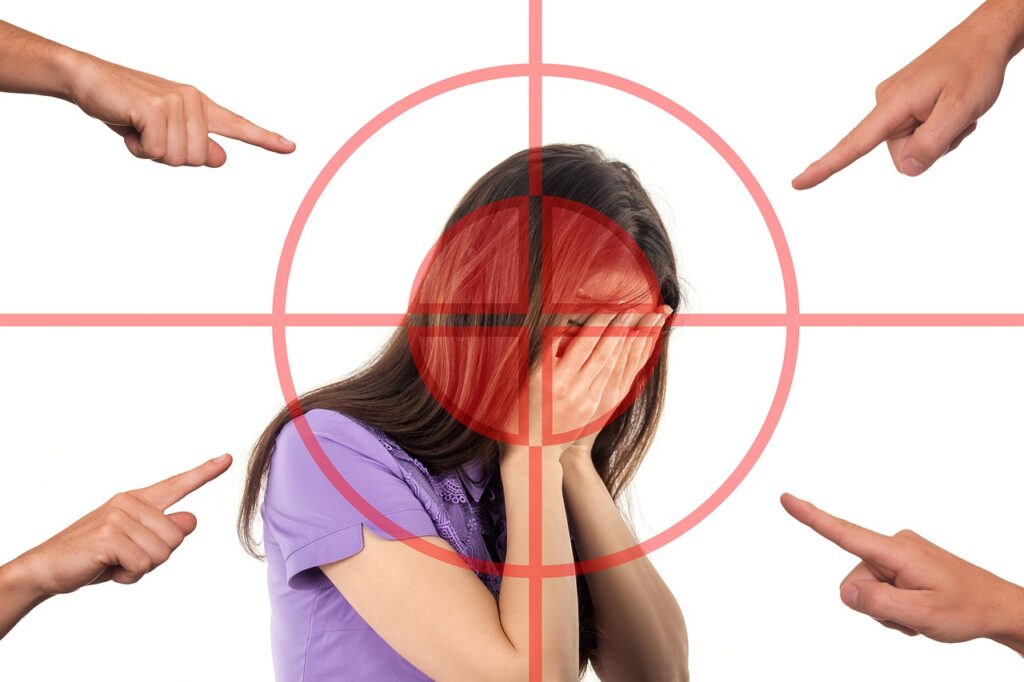
by Christine Marie, PhD
When someone discloses that she has been sexually assaulted, the way you react is a key factor in helping her recover. The first time she disclosures her experience is an extremely sensitive period for the survivor. Responses that are:
- Believing
- Supportive
- Validating
-can reaffirm a survivor’s positive sense of self during this fragile time.
Survivors that receive supportive responses are less likely to experience depression and PTSD, and more likely to heal with less complications and experience positive traumatic growth.
Sexual assault is a serious trauma that can impact the survivor’s life in multiple negative ways. This is just a partial list.
- Debilitating anxiety
- Brain fog
- Numbness
- Dulled sensory, affective and memory functions.
- Disorganized thought content.
- Nausea and vomiting
- Shaking
- Obsession to wash or clean themselves.
- Hysteria, confusion and crying
- Bewilderment
- Insomnia and/or nightmares
- Hyper-sensitivity to the reaction of other people
- Self-blame
- Fear
- Mood swings
- Dissociation (floating)
- Health problems
- Anger
- A sense of powerlessness, or helplessness
- Humiliation
- Violation and betrayal
- Panic attacks
- Hypervigilance
- Desire to isolate
- Loss of life joy
- Dismal outlook of the future
- Distrust
- Feeling like the world has been shattered
- Post-traumatic stress disorder
A rape can have a profound impact a survivor’s entire life.
Negative responses make things worse.
Negative responses such as victim-blaming and shaming can retraumatize the survivor by increasing:
- Feelings of shame
- Self-blame
- Isolation
- Depression
- PTSD symptoms
- Negative impact on identity
- And more
When rape survivors are blamed for what was done to them, it is sometimes called the “second rape.”
Studies showed that rape survivors who blamed themselves for the assault exhibited more PTSD symptoms.
One of the most important jobs of a therapist, friends and family is to help the victim stop blaming herself.
Toxic self-blame magnifies the trauma. “Irrational self-blame specific to a traumatic event is an act of violence against an innocent self,” explains researcher Katherine Unthank (2007). She calls it “shame’s momentary lethal impact on the self” (p. iii).
No matter what the survivor could have done differently, she did not expect to be assaulted, she certainly did not ask to be assaulted, and it is not her fault that she was assaulted.
Victim-blaming
Victim-blaming holds the survivor responsible for the crimes against her even when there is no logical reason to do so. It includes demeaning the character of the survivor to appear less innocent, and therefore more blameworthy. When a survivor’s traumatic experience is disregarded, minimized, or discredited, the feelings of the survivor can “closely mimic the victim’s experience at the hands of her assailant” (Campbell & Raja, 1999, p. 142).
Ideal Victim Myth
Victim-blaming is most likely to occur when the survivor does not meet the definition of the “ideal victim” (Meyer, 2016). Ideal victims are those who were behaving in morally acceptable ways when victimized, who are perceived as weak, shy, innocent, vulnerable (like children), and who were victimized by a stranger with whom the victim had no prior relationship (Christie, 1986). The ideal victim myth undermines the reputation and credibility of individuals who are outside the boundaries of the ideal victim stereotype. Very few victims are actually ideal victims.
Why do people blame the victim?
Belief in a Just World
A researcher named Bevens (2016) explains that observers demean victims, even those that are most deserving of sympathy, in order to bring about a more appropriate match between the victim’s character and her fate. This makes the world seem more just, because it is frightening to imagine that a victim did nothing wrong, and yet was still victimized. What does this mean for our own safety? Belief in a just world helps people distance themselves from the suffering of others. In a just world, people get what they deserve (Lerner, 1980). This helps people feel assured that a similar fate would never happen to them.
Psychological Distancing
Psychological distancing is when people learning about the situation (observers) try to make the victim seem very different from themselves (Hafer & Begue, 2005). By judging the victims to be wildly different from themselves, it helps calm observers’ fears that they could fall prey to the same misfortune (Lerner, 1980; Mahoy, 2013).
Interestingly, psychological distancing happens more often when the victims are not very different from the observers. Goldenberg and Forgas (2012) found that victim-blaming was more likely to take place among in-group members with whom the viewers had the most similarities.
Fundamental Attribution Error
The fundamental attribution error refers to the tendency for people to attribute, or blame, the victimization of others to their personal characteristics rather than to the external circumstances (Hooper et al., 2015; L. Ross, 1977).
Differentiating victims (i.e., describing them as unwise, gullible, weak, idiotic, too trusting, asking for it) helps the observers believe that victims deserved their suffering due to their character flaws. They minimize the most important factor in a rape: the actions of the rapist. No matter what a rape victim did, whether she was wearing something sexy, drinking, out too late, or agreeing to a romantic evening, no still means no. Having one’s free will overcome by a rapist is never due to the character flaws of the victim, and always due to the abusive, violating actions of the perpetrator.
A Note About Date Rape
The stronger the pre-existing relationship between the perpetrator and the victim, the less people blame the perpetrator (Bieneck & Krahé, 2011; Durán et al., 2010; Viki et al., 2004), and the more likely that people will focus on missteps by the victim (Ayala et al., 2018; Pedersen & Strömwall, 2013). This makes disclosing rape in the context of a friendship or dating relationship all the more difficult.
How to respond when someone discloses a sexual assault
(The following information was taken from the Ending Violence Association of British Columbia)
Listen
- Find a private place to talk and tell them you are glad they are telling you.
- Be patient and let them tell you as little or as much as they want at their own pace, without interrupting. Talking about how they feel can be as helpful or more helpful than talking about the details. Take their lead on this.
- Show them that you are actively listening through your body language (e.g., nodding, facing in their direction, sitting down at eye level) and words (e.g., “I hear what you’re saying”).
Believe & Support
Be aware that some people may find themselves flooded with emotions. If they are getting increasingly upset while telling you about what happened, they may be reliving the experience. There are several ways you can help to ground them if they are overwhelmed:
- Encourage them to take slow deep breaths while gently planting their feet into the floor and holding on to their knees.
- Ask them to keep their eyes open, even if just momentarily. This helps to bring them back to the present.
- Ask them to look around the room and name some ordinary objects they see. Do this until they feel calmer.

- Respect their personal space, and do not touch them. Even if you think they want a comforting touch, resist your urge to do so. Always follow their lead. You can offer them something to keep them warm, like a blanket or your jacket (shock can involve feeling cold, shivering and shaking).
- Validate their feelings and assure them that these are normal reactions to a very traumatic event, and avoid promising them that everything will be okay.
- Assure them that it was not their fault (many survivors struggle with blaming themselves) and that the responsibility for sexual assault lies solely with the perpetrator. This is true regardless of whether they were drinking, got into the perpetrator’s car, brought the perpetrator to their home, etc. It does not matter what the survivor did or did not do before, during, or after the assault – it is never their fault.
- Reassure them that you will do whatever you can to help them get the support they need. If possible, stay with them or find someone they trust who can be with them.
Common mistakes when someone discloses a sexual assault:
- Having a judgmental, shocked, or over-reactive initial response
- Showing disbelief, minimizing, or questioning the “truth” of a survivor’s story or reactions – especially if they seem to be very calm, or don’t want to report to police.
- Asking for unnecessary details, or focusing on the behavior, appearance, and/or location of the survivor at the time of the assault.
- Focusing on your own emotional reaction (e.g., horror, sadness, anger, recalling a similar experience you may have had).
- Questioning why a survivor did not act in the ways society expects a sexual assault survivor to react (e.g., fighting back, reporting to police, discontinuing contact with the perpetrator after the assault).
Empower!
- Find out if the survivor needs medical assistance. Encourage them to seek medical care with a specialized sexual assault program (if available) or with their family doctor or a nurse practitioner.
- Talk to them about their safety. Ensure they are in a safe place or help them find a safe place to go.
- Ask them about who their supports are (e.g., family, friends, professionals) and help them connect with these supports.
- Provide them with information about local specialized sexual assault response programs as soon as possible. Support them in accessing these services.
Note: The article written used the pronouns she/her. Men, transgender, non-binary, and LGBTQ+ all experience disheartening levels of sexual violence as well. For more resources:
https://www.nsvrc.org/sites/default/files/publications/2019-02/Transgender_infographic_508_0.pdf
https://www.rainn.org/articles/sexual-assault-men-and-boys
https://www.rainn.org/articles/sexual-abuse-people-disabilities
